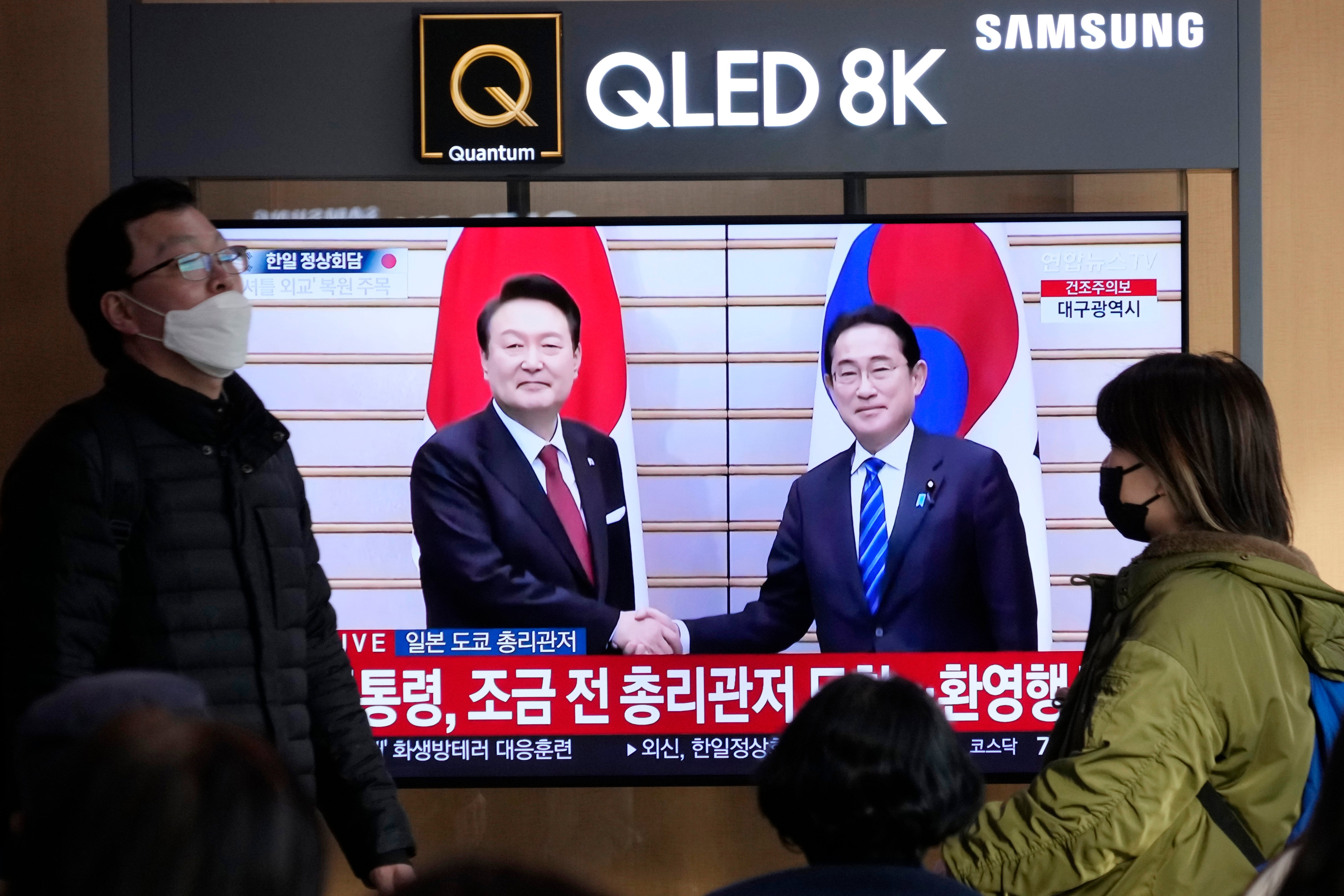Japan to restore preferred trade status for South Korea
Japan’s trade ministry says it has begun procedures to restore preferential trade status for South Korea, days after Seoul took a similar step for Tokyo and requested reciprocity, and more than three years after the countries downgraded each other during a bitter historical dispute

Your support helps us to tell the story
From reproductive rights to climate change to Big Tech, The Independent is on the ground when the story is developing. Whether it's investigating the financials of Elon Musk's pro-Trump PAC or producing our latest documentary, 'The A Word', which shines a light on the American women fighting for reproductive rights, we know how important it is to parse out the facts from the messaging.
At such a critical moment in US history, we need reporters on the ground. Your donation allows us to keep sending journalists to speak to both sides of the story.
The Independent is trusted by Americans across the entire political spectrum. And unlike many other quality news outlets, we choose not to lock Americans out of our reporting and analysis with paywalls. We believe quality journalism should be available to everyone, paid for by those who can afford it.
Your support makes all the difference.Japan’s trade ministry on Friday said it has begun procedures to restore preferential trade status for South Korea, days after Seoul took a similar step for Tokyo and requested reciprocity, and more than three years after the countries downgraded each other during a bitter historical dispute.
Japan's Ministry of Economy, Trade and Industry said talks with South Korea this month showed that its controls over trade in sensitive materials with both civilian and military uses are now as effective as those used by Japan.
It said it has proposed as a result that South Korea be restored to the list of countries which receive preferential Japanese trading status, subject to a monthlong public comment period ending May 31. The list currently contains 26 nations including the United States, Britain, Canada, France and Germany.
The step would end a trade dispute that began in July 2019 when Japan removed South Korea from its “white list” of countries given fast-track approvals in trade, in apparent retaliation for South Korean court rulings in 2018 that ordered Japanese companies to compensate Korean workers for abusive treatment and forced labor during World War II, when the Korean Peninsula was a Japanese colony.
Japan also tightened export controls on key chemicals used by South Korean companies to make semiconductors and displays, prompting South Korea to file a complaint with the World Trade Organization and remove Japan from its own list of countries with preferred trade status.
Friday’s decision comes days after South Korea formally restored Japan to its trade “white list.”
Seoul and Tokyo have been working to repair their relations as they deepen three-way security cooperation with Washington in response to growing regional threats from North Korea and China.
Their ties have improved rapidly since March, when South Korean President Yoon Suk Yeol's government announced plans to use South Korean funds to compensate the forced laborers without requiring contributions from Japan.
Yoon also traveled to Tokyo for talks with Prime Minister Fumio Kishida and agreed to rebuild the countries’ security and economic ties.
After their talks, South Korea withdrew its complaint at the WTO and Japan simultaneously confirmed its removal of the export controls on chemicals seen as vital to South Korea’s technology industry.